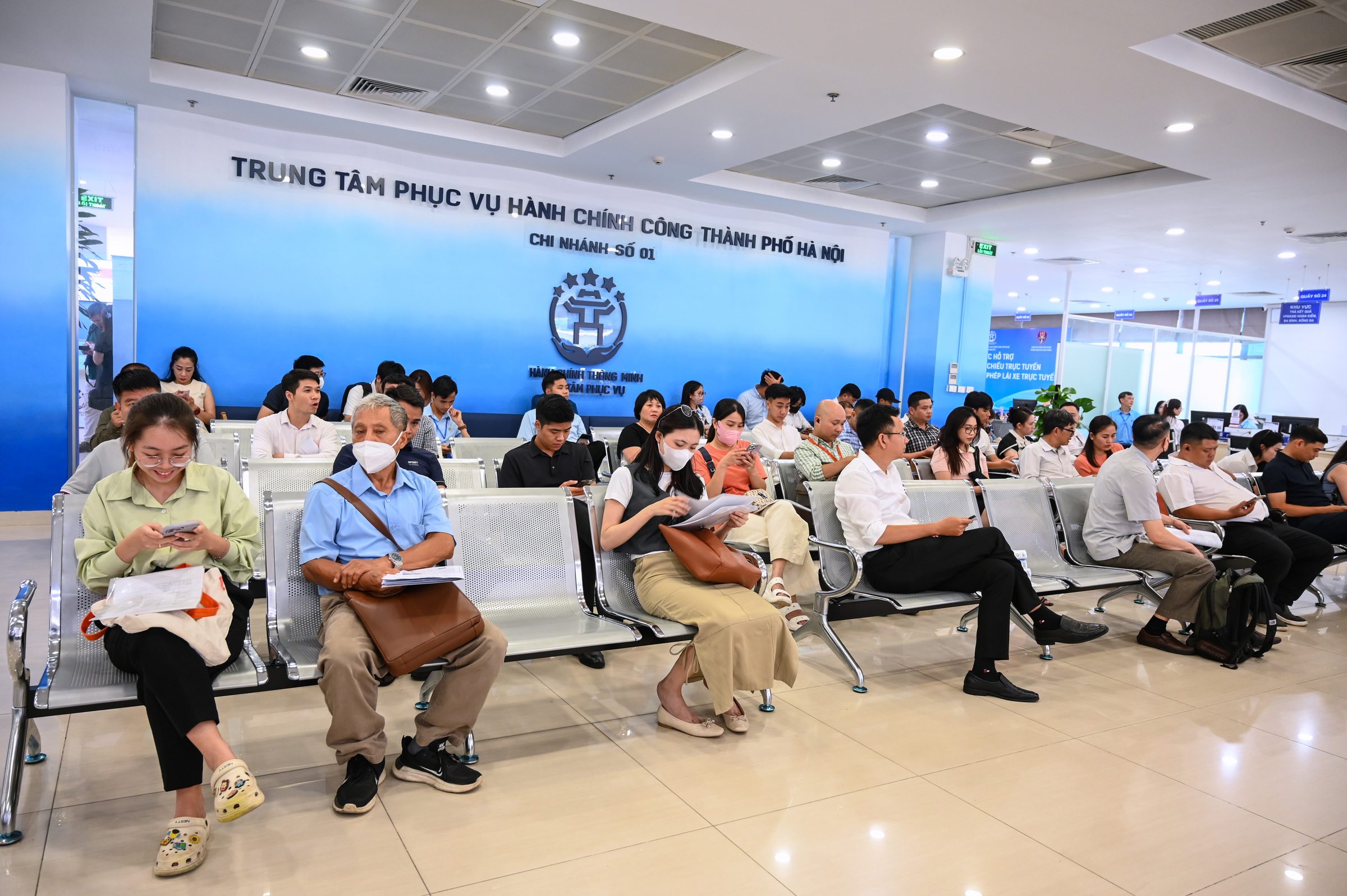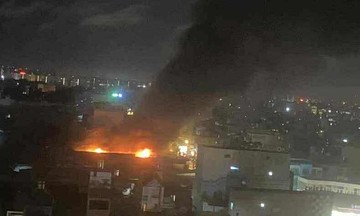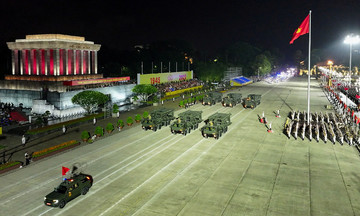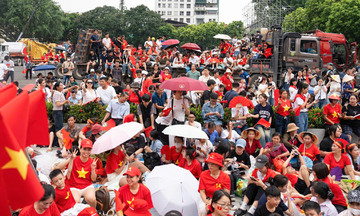The Ministry of Agriculture and Rural Development outlines 6 steps for land allocation, lease, and land use purpose conversion in the "Handbook for State Management of Land" for two-level local administration. These steps apply to cases where land allocation or lease does not involve auctioning land use rights or bidding for project investors; cases where land allocation or lease is conducted through bidding for project investors; land and forest allocation; land and forest lease; and land use extension upon expiration.
First, applicants submit their dossiers to the Public Administration Service Center. Applicants can submit copies of documents and present the originals for verification, submit original documents, or submit notarized copies.
For online submissions, dossiers must be digitized from original or notarized, certified document copies.
 |
Hanoi residents complete procedures at the Public Administration Service Center. Photo: Giang Huy |
Hanoi residents complete procedures at the Public Administration Service Center. Photo: Giang Huy
The Public Administration Service Center is responsible for forwarding complete dossiers to the commune-level agriculture and rural development specialized agency.
Second, the commune-level specialized agency for agriculture and rural development will task the Land Registration Office or its branch with providing land database information and creating land parcel map extracts for complete and valid dossiers.
The agency will then guide applicants to supplement land parcel measurements where official maps are unavailable, or to revise and resubmit incomplete or invalid dossiers.
The commune-level agency reviews and verifies the dossiers, conducts field inspections, compares forest conditions between dossiers and the proposed allocation area (for land and forest allocation cases), and examines topsoil usage plans for converting rice-growing land (if applicable).
Simultaneously, the commune-level agency collaborates with relevant agencies to determine land use and rental fee exemptions (if any).
The commune-level agency prepares the complete dossier for submission to the commune People's Committee chairperson. This includes a draft proposal, draft decisions for land allocation, lease, land use purpose conversion, or land use extension; land parcel map extracts or measurements; and the application form.
Third, the commune People's Committee chairperson reviews and issues decisions for land allocation, lease, land use purpose conversion, land and forest allocation/lease, or land use extension. If land use or rental fees apply, further steps are required.
Fourth, if land use or rental fees are calculated based on the land price table, the commune-level agency forwards a financial obligation information sheet to the tax authority.
The tax authority determines the payable land use or rental fees and calculates fees for years following any exemption period granted during the construction phase.
The tax authority then issues a payment notice to the land user. Upon payment confirmation, the tax authority notifies the commune-level agriculture and rural development specialized agency.
If land use or rental fees are calculated based on specific land prices, the commune-level specialized agency organizes the land valuation process and submits it to the commune People's Committee chairperson for approval. The subsequent payment steps are similar to the previous scenario.
Fifth, the commune-level agency signs the land certificate and transfers the dossier to the Land Registration Office or its branch to update the land database and land records.
The commune-level agency conducts the land or land and forest handover on-site and presents the land certificate to the land user, except for land use extension cases.
Sixth, the Land Registration Office or its branch updates the land database and land records; confirms changes to the land use term on existing certificates for land use extension cases where a new certificate isn't requested; and forwards the results to the dossier receiving agency.
The dossier for land use purpose conversion requiring investment approval includes: an application form; topsoil usage plan (for converting rice-growing land); copies of investment project approval documents, investment policy approval decisions, or simultaneous investment policy and investor approval decisions as per investment laws; and investor selection approval documents for public-private partnership projects (if applicable).
The processing time is no more than 15 days upon receiving a complete and valid dossier. For communes in mountainous, border, island, or economically disadvantaged areas, the processing time is no more than 25 days.
Gia Chinh












